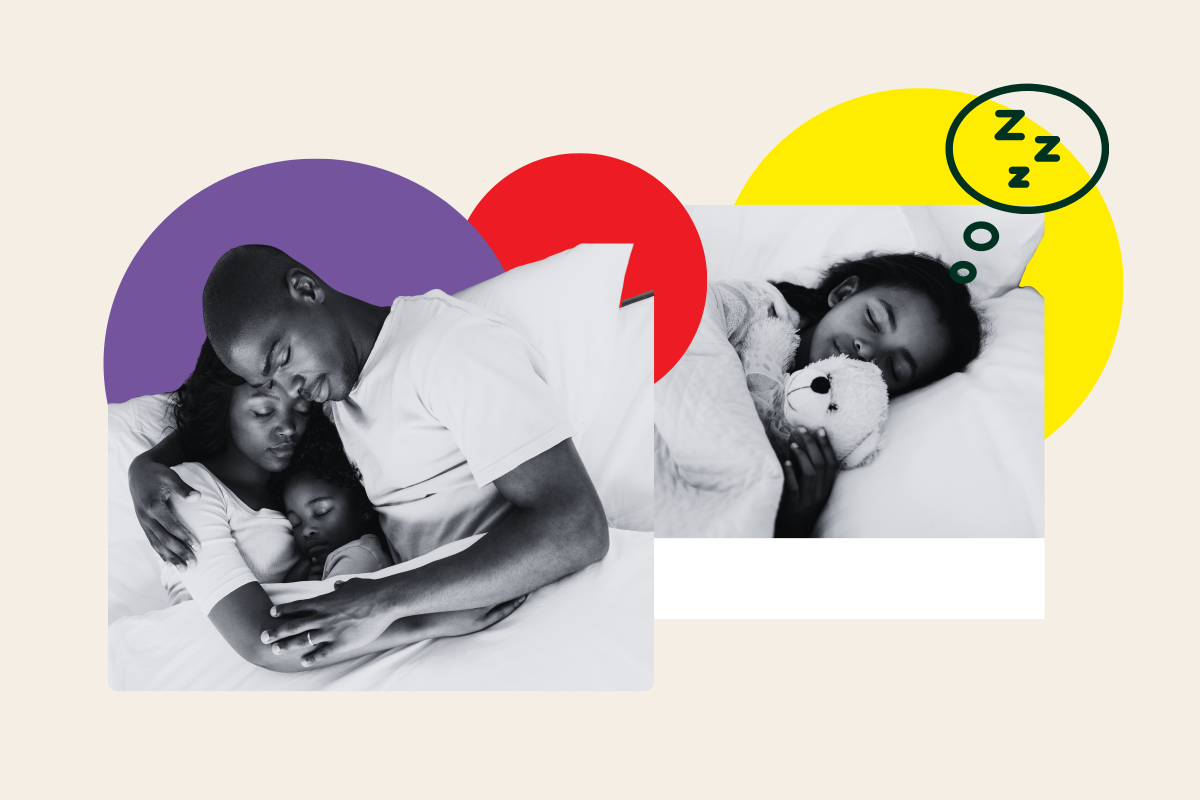The debate around bed-sharing has long been keeping parents up at night, often depending on the unique needs of the child and the family's circumstances.
According to a recent poll, Americans are divided by the topic. Participants of a survey were asked: Until what age do you think it's acceptable for children to sleep in the same bed as their parents?
This random double-opt-in survey of 1,000 general population Americans was commissioned by Newsweek between November 2 and November 6. It was conducted by market research company Talker Research, whose team members are part of the Market Research Society (MRS) and the European Society for Opinion and Marketing Research (ESOMAR).

The survey results show that a significant portion of respondents (35 percent) believe it's acceptable for children to co-sleep with their parents until they reach the age of 3. Following closely, 24 percent said it's OK up to ages 3 to 5.
However, acceptance rapidly declines as children grow older. Only 7 percent of respondents think co-sleeping is acceptable until ages 6 to 8, and the numbers drop further to 3 percent for ages 9 to 11 and just 1 percent for children 12 or older.
These results suggest a general consensus among parents that co-sleeping is appropriate only in the early years of a child's life, tapering off significantly once they enter school age.
The data also revealed that 18 percent of respondents believe it's never acceptable for children to sleep in their parents' bed, while 12 percent say there is no specific age when it stops being acceptable.
Interestingly, Generation Z (born 1997-2006) and millennials (1981-1996) are relatively open to co-sleeping, with a combined 60 percent saying it's acceptable up until ages 3 to 5. The average acceptable age reported by the younger generation was around 4.2 years.
In contrast, Generation X (1965-1980) and baby boomers (1946-1964) showed more skepticism. While 42 percent of Gen X respondents said under 3 years is an acceptable age limit, baby boomers had the highest rate of respondents (27 percent) who believe co-sleeping is never acceptable.
The Silent Generation (1925-1945) was the least supportive of co-sleeping overall, with 59 percent stating it is never acceptable, reflecting more traditional attitudes toward parenting and sleep independence.
Newsweek spoke to Dr. Natalie Barnett, the head of sleep research at Nanit—a baby monitor tracking brand—who noted the generational divide when it comes to bed-sharing, with younger generations (Gen Z and millennials) generally more accepting of children sharing the bed with their parents than older generations.
"This divide likely reflects evolving parenting norms and an increase in open-mindedness around diverse family arrangements among younger adults, who may also value a more flexible approach to parenting," Barnett said.
Bed-sharing is a far more common practice in Asian and south Asian cultures, she added.
Barnett also outlined a number pros of bed-sharing, including enhanced bonding, easier breastfeeding and better sleep for some families. However, she also highlighted the disadvantages: safety risks, interrupted sleep, potential impact on independence and knock-on effect on parental relationships.
"It's a personal choice, and parents should make the choice that works best for their family. That said, for very young children, the evidence is clear. The risk of SIDS [sudden infant death syndrome] is significantly increased in families who bed-share and I always encourage families to have their infants sleep on a separate, clear sleeping surface," Barnett said.




















 English (US) ·
English (US) ·